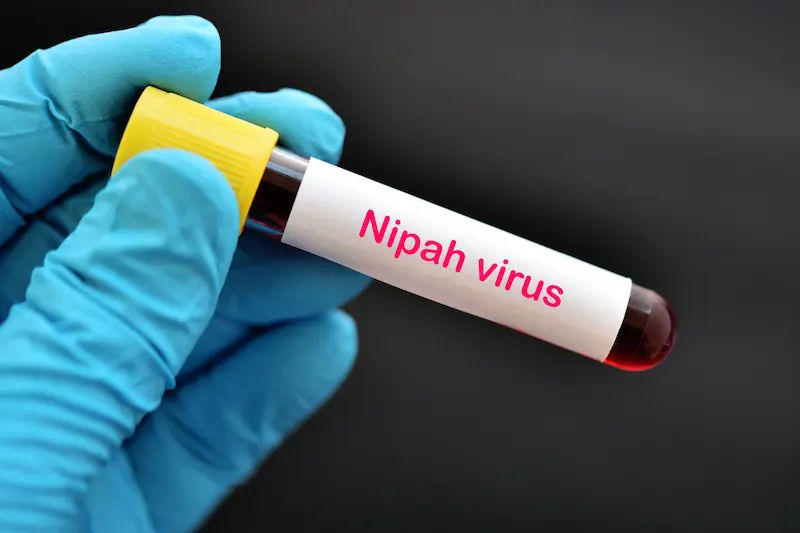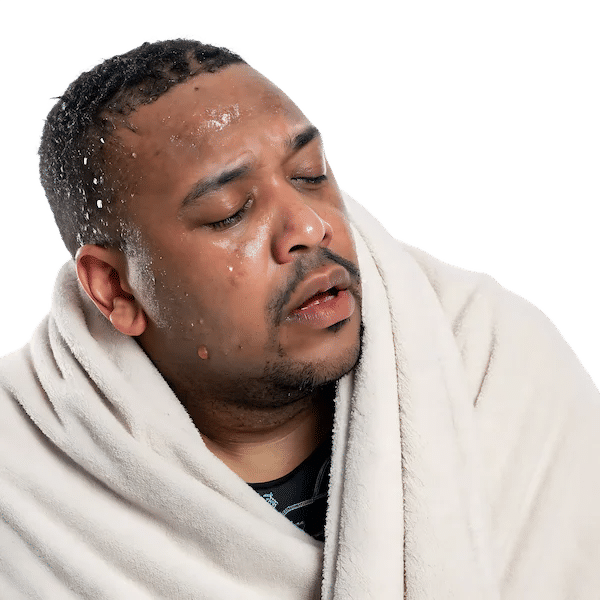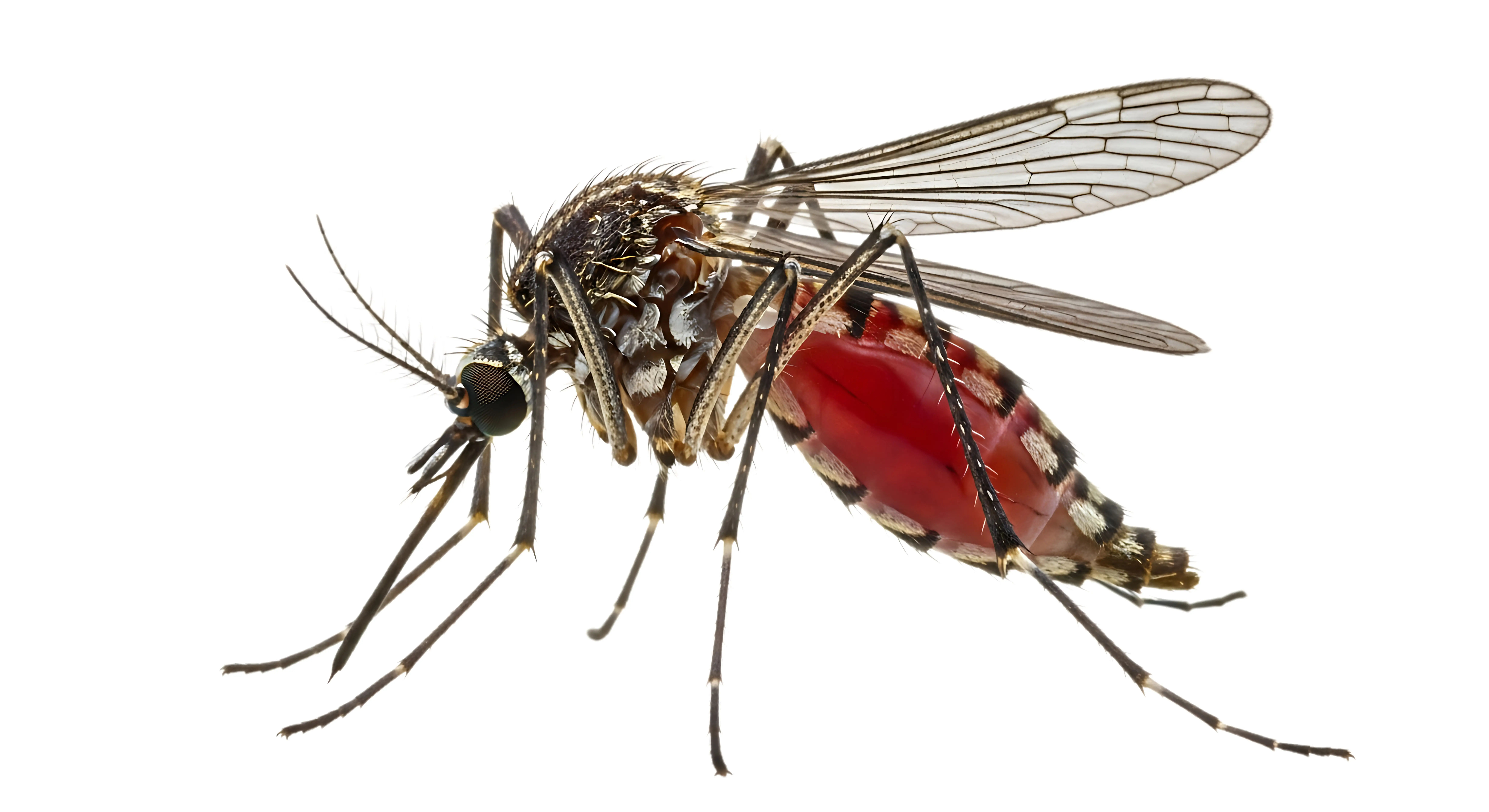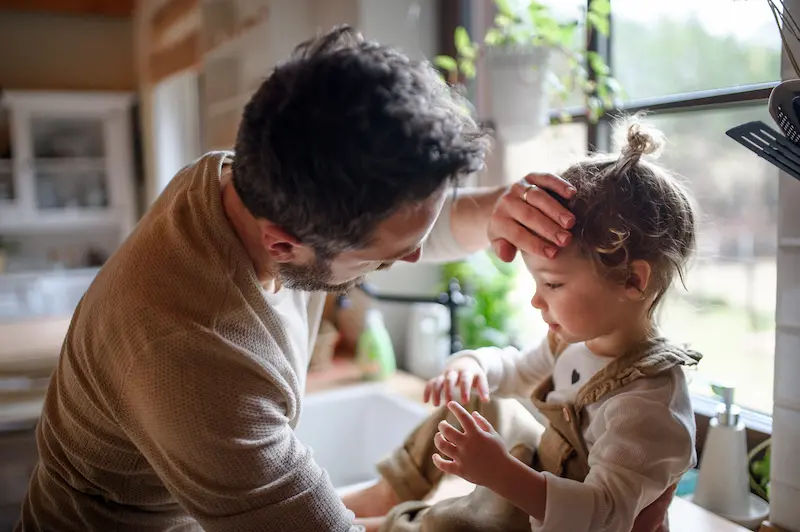Guide to Fever Children
A practical, science-based guide to managing fever in children. Learn the common causes, how to measure temperature correctly, home treatments, red flags, and when to seek urgent medical care. Includes safe dosing tips and when to consult Apollo 24|7.

Written by Dr. Mohammed Kamran
Reviewed by Dr. J T Hema Pratima MBBS, Fellowship in Diabetes Mellitus
Last updated on 13th Jan, 2026
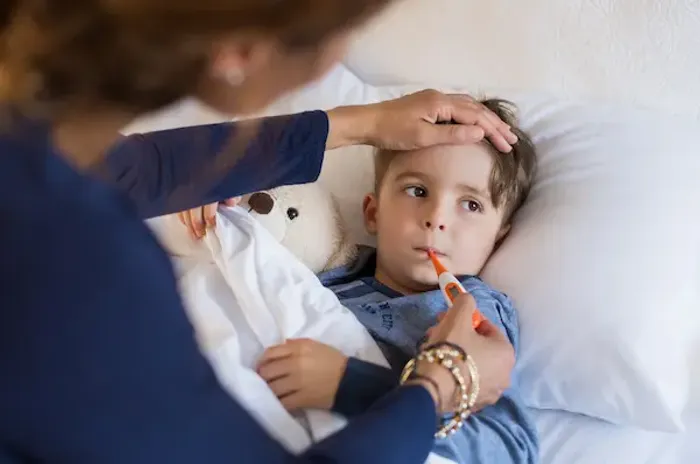
Introduction
Few things worry parents more than a child’s fever. The warm forehead, flushed cheeks, and restless sleep can make you wonder: Is this normal? What should I do right now? When do I need to call the doctor? This complete guide to fever in children answers those questions in plain language, grounded in paediatric guidelines. You’ll learn what counts as a fever, the most common causes by age, how to measure temperature accurately, and practical steps to keep your child comfortable and safe.
We’ll walk through red-flag symptoms, when to seek urgent care, how to use paracetamol or ibuprofen safely, and what to do about febrile seizures. You’ll also find tips for preventing the spread of infections, guidance on returning to school or nursery, and insights into special situations like vaccine-related fevers and travel. Whether your child is a toddler with a fever at night or a school-age child battling a seasonal virus, you’ll have a calm, step-by-step plan. If symptoms persist longer than expected or you’re unsure what to do, consult a healthcare professional; when appropriate, you can also speak to a doctor online with Apollo24|7 for evaluation.
Consult a Top General Practitioner for Personalised Advice
What is a Fever in Children?
Understanding what qualifies as a fever helps guide the right response.
A fever in children is a body temperature of 38.0°C (100.4°F) or higher, most reliably measured rectally in babies and toddlers. Normal temperature ranges vary slightly by method:
A fever is a symptom—not a disease. It signals that the immune system is working harder to fight infection.
Key insights for parents
- Focus more on the child’s behaviour and hydration than the exact number
- Fevers ≥40°C need close observation
- Any fever in a baby under 3 months = urgent evaluation
- Fevers very rarely cause brain damage
Track fever patterns — temperature, behaviour, and response to medicine.
Common Causes of Fever by Age
Age influences the likely cause and severity of fever.
Most childhood fevers are due to viral infections such as colds, influenza, COVID-19, roseola, or hand-foot-and-mouth
disease.
Infants under 3 months
Even low-grade fevers may indicate serious infection → urgent medical review.
Common causes:
- Viral infections
- Urinary tract infections (UTIs)
- Less commonly, bacterial infections
Ages 3–36 months
Mostly respiratory or gastrointestinal viruses.
Other causes:
- Ear infections
- Strep throat (more common after age 3)
- UTIs (especially girls and uncircumcised boys)
School-age children and teenagers
- Viruses remain most common
- Strep throat, sinus infections
- “Feverish feeling” may also reflect dehydration
Vaccination-related fever
- Mild and short-lived
- Some vaccines (like MMR) can cause fever 6–12 days later — normal immune response
Teething vs. fever
- Teething does not cause a high fever
- ≥38.0°C → look for other causes
Consider exposures: school outbreaks, travel, insect bites, and swimming.
When to Worry: Red Flags and Urgent Care
Some symptoms signal risk and require prompt medical review.
Seek urgent medical care if your child shows:
Age-specific red flags
- Under 3 months: any temperature ≥38.0°C
- 3–36 months: fever ≥39.0°C with no clear source
Emergency signs at any age
- Difficulty breathing
- Blue or pale skin
- Non-blanching rash
- Seizure (especially >5 minutes)
- Severe headache or stiff neck
- Persistent vomiting or dehydration
- Extreme lethargy or confusion
Fever duration
- Viral fevers: usually settle within 3–5 days
- If not improving by Day 3 → seek medical advice
- Fever that returns after improving → reassess
If symptoms persist beyond two weeks, consult a doctor online with Apollo24|7 for evaluation or arrange a physical visit if advised.
Your instincts matter — caregivers often spot when something is not right.
How to Measure Temperature Accurately
Correct technique prevents false alarms and helps track trends.
Thermometers and recommended ages:
Technique essentials
- Rectal: insert 1–2 cm with lubricant, hold in place
- Ear: gently lift ear up/back, aim at eardrum
- Forehead: follow device sweep instructions
- Use the same method throughout the illness
Avoid measuring right after a bath or exercise.
Use a simple log to detect meaningful changes.
Home Care: Comfort, Hydration, and Safe Medicines
The goal is comfort — not eliminating the fever.
Fluids and feeding
- Offer small, frequent sips: water, breast milk, oral rehydration solution
- Popsicles and broths help older kids
- Reduced appetite is normal initially — fluid intake is key
Clothing and room environment
- Light layers
- Cool, well-ventilated room
- Avoid cold baths or alcohol rubs
Fever-reducing medicines
- Paracetamol (acetaminophen):
10–15 mg/kg every 4–6 hours; do not exceed recommended daily limit
- Ibuprofen:
10 mg/kg every 6–8 hours; for age ≥6 months
Do NOT:
- Give aspirin (risk of Reye’s syndrome)
- Double-dose combination products
- Wake a comfortable sleeping child just to medicate
Treat discomfort, not the number.
Tests, Diagnosis, and Special Situations
Most fevers don’t require tests — clinical judgement guides the need.
Testing may be needed when:
- Infants <3 months — rule out serious infection
- Fever without a clear source (possible UTI)
- Severe or localised symptoms (pneumonia, strep throat, etc.)
Apollo 24|7 offers convenient home collection for tests like urine analysis when recommended.
Febrile seizures
- Happens in 2–5% of children aged 6 months–5 years
- Usually brief and harmless
What to do:
- Place the child on the side
- Don’t put anything in their mouth
- Time of the seizure
- Call emergency help if longer than 5 minutes
Paracetamol or ibuprofen does not reliably prevent seizures.
Returning to school or nursery
- Fever-free for 24 hours without medication
- Must feel well enough to participate
Travel and chronic conditions
Seek quicker medical review if your child has:
- Immune compromise
- Sickle cell disease
- Recently travelled to malaria/dengue areas
Conclusion
Fever in children is common and usually the body’s natural defence at work. With the right understanding — what counts as a fever, when to worry, and how to support hydration and comfort — most fevers can be safely managed at home. Red flags, age-specific concerns, and illness duration guide when to seek medical review. Always trust your parental instincts; if something feels wrong, act on it.
If symptoms persist more than a few days, worsen, or include emergency signs such as breathing difficulties or non-blanching rash, do not delay. Consult a doctor — when appropriate, you can connect with Apollo 24|7 online for guidance and arrange home sample collection if tests are needed. With calm monitoring and evidence-based care, you can help your child recover comfortably and confidently.
Consult a Top General Practitioner for Personalised Advice
Consult a Top General Practitioner for Personalised Advice

Dr. Rajib Ghose
General Physician/ Internal Medicine Specialist
25 Years • MBBS
East Midnapore
VIVEKANANDA SEBA SADAN, East Midnapore

Dr. Suvadeep Sen
Critical Care Specialist
12 Years • MBBS, MD, FNB (CRITICAL CARE MEDICINE), EDIC
Mumbai
Apollo Hospitals CBD Belapur, Mumbai

Dr. Bhethala Sharan Prakash
General Physician/ Internal Medicine Specialist
5 Years • MBBS MD
Bengaluru
PRESTIGE SHANTHINIKETAN - SOCIETY CLINIC, Bengaluru

Dr. Anand Ravi
General Physician
2 Years • MBBS
Bengaluru
PRESTIGE SHANTHINIKETAN - SOCIETY CLINIC, Bengaluru

Dr. Zulkarnain
General Physician
2 Years • MBBS, PGDM, FFM
Bengaluru
PRESTIGE SHANTHINIKETAN - SOCIETY CLINIC, Bengaluru
Consult a Top General Practitioner for Personalised Advice

Dr. Rajib Ghose
General Physician/ Internal Medicine Specialist
25 Years • MBBS
East Midnapore
VIVEKANANDA SEBA SADAN, East Midnapore

Dr. Suvadeep Sen
Critical Care Specialist
12 Years • MBBS, MD, FNB (CRITICAL CARE MEDICINE), EDIC
Mumbai
Apollo Hospitals CBD Belapur, Mumbai

Dr. Bhethala Sharan Prakash
General Physician/ Internal Medicine Specialist
5 Years • MBBS MD
Bengaluru
PRESTIGE SHANTHINIKETAN - SOCIETY CLINIC, Bengaluru

Dr. Anand Ravi
General Physician
2 Years • MBBS
Bengaluru
PRESTIGE SHANTHINIKETAN - SOCIETY CLINIC, Bengaluru

Dr. Zulkarnain
General Physician
2 Years • MBBS, PGDM, FFM
Bengaluru
PRESTIGE SHANTHINIKETAN - SOCIETY CLINIC, Bengaluru
More articles from Fever
Frequently Asked Questions
1) Is a fever dangerous for children?
No — fever itself is rarely harmful. Focus on hydration, behaviour, and red flags. If unsure, consult a doctor online with Apollo24|7.
2) Should I alternate paracetamol and ibuprofen?
Only if advised. It increases dosing error risk. Prefer using one medicine correctly.
3) Can teething cause fever?
Teething does not cause high fever. Look for other causes if the temperature is ≥38.0°C.
4) When can my child return to school/nursery?
After being fever-free for 24 hours without medication and feeling well.
5) How do I help during a febrile seizure?
Keep the child safe on their side, don’t put anything in their mouth, and call for help if lasting >5 minutes.
